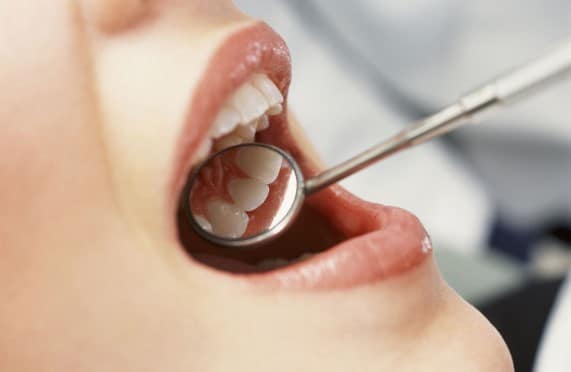You brush your teeth twice a day, and you know how to floss, although you probably don’t do it every day. Your oral hygiene routine is okay, but is it doing what you need it to do to keep your teeth and gums in top shape?
Poor oral hygiene, either accidental or intentional, is one of the leading causes of oral disease. These mostly preventable health conditions affect almost 3.5 million people in the world, causing significant pain and even leading to death.
Many residents recommend this dentist sunnyvale not just for the quality of care but also for the friendly office environment.
But these problems are preventable. The key is how well you take care of your teeth and gums.
If you’re not sure if your routine is up to par, there’s an easy way to find out. Check for these common symptoms that serve as warnings from your body that you’re not taking care of your oral health enough. If you have any of these signs, it’s time to step up your dental hygiene, and we’ll show you how here.
1. Tooth Discomfort/Pain
Many of us like to live by the “if we ignore it, it will go away” theory of pain. When it comes to tooth discomfort, that is never the case. Sure, a throbbing discomfort may disappear temporarily, but when it comes back, it will be worse than before.
Tooth pain is always caused by something going on under the surface. The sooner you handle it, the easier the fix will be. However, if you wait too long, something like a simple cavity can become tooth decay that needs a crown or a root canal to fix. If the decay reaches the tooth’s nerve or is decayed enough that it fractures, you’ll feel severe pain.
Tooth sensitivity, decay, chips, and fractures are common effects of bruxism (teeth grinding and clenching). If you think grinding may be the reason for your tooth pain, one of the first steps to take is to invest in a custom-made night guard to reduce the damage. Check out professional labs like JS Dental Lab for high-quality oral appliances without the hefty price tag.
2. Swollen, Bleeding, or Receding Gums
Flossing regularly serves two major purposes. First, it helps remove the yucky debris caught in the nooks and crannies of your teeth that your toothbrush didn’t reach. Second, and importantly, it’s a good way to gauge your oral health.
Without flossing, it’s hard to catch bleeding or swollen gums early. When you floss, you get familiar with your natural gum color and texture. You may have occasional bleeding if you hit the angle just the wrong way with the thread or pic, but your gums don’t bleed for the most part.
By the time they start swelling painfully, obviously changing color, or bleeding from your brushing, there’s a deeper problem going on. Catching gum disease in its earliest stages is crucial. At that level, called gingivitis, gum disease is reversible.
But if it stays untreated, it turns into periodontitis, a chronic oral health condition that causes receding gums and bone loss. Advanced periodontal disease is linked to systemic conditions like cancer, diabetes, heart and respiratory disease, and Alzheimer’s.
Your dentist can tell you what stage of gum disease you have and how to treat it. In the meantime, look for toothpaste designed to treat sensitive gums and boost your flossing routine.
3. Changes in Your Mouth
Your gums aren’t the only place you’ll notice the consequences of poor dental care.
Your mouth is full of soft, sensitive tissue that relies on a strategic mix of bacteria and moisture to stay healthy. When that mix is out of balance because the bacteria are allowed to take over and cause decay, the impact affects your tongue and other soft tissue.
Watch your tongue (literally, in this case). It’s an early indicator of your oral health. If it changes color or texture, there’s a shift in bacteria in your mouth. Experts suggest you clean your tongue every night, brushing it as you do your teeth. You’ll recognize its texture and color and notice if it starts to change.
You may also notice sores, lumps, or lesions in your mouth. These aren’t as common as tongue changes. However, they’re a sign that you need to step up your oral healthcare and visit your dentist. They can watch the growth and make sure it doesn’t progress into oral cancer.
Conclusion
From brushing and flossing to dental visits, there are plenty of steps to take to keep your teeth and gums safe. Get to know these symptoms of poor dental care, and follow the steps to prevent your oral health from deteriorating.
